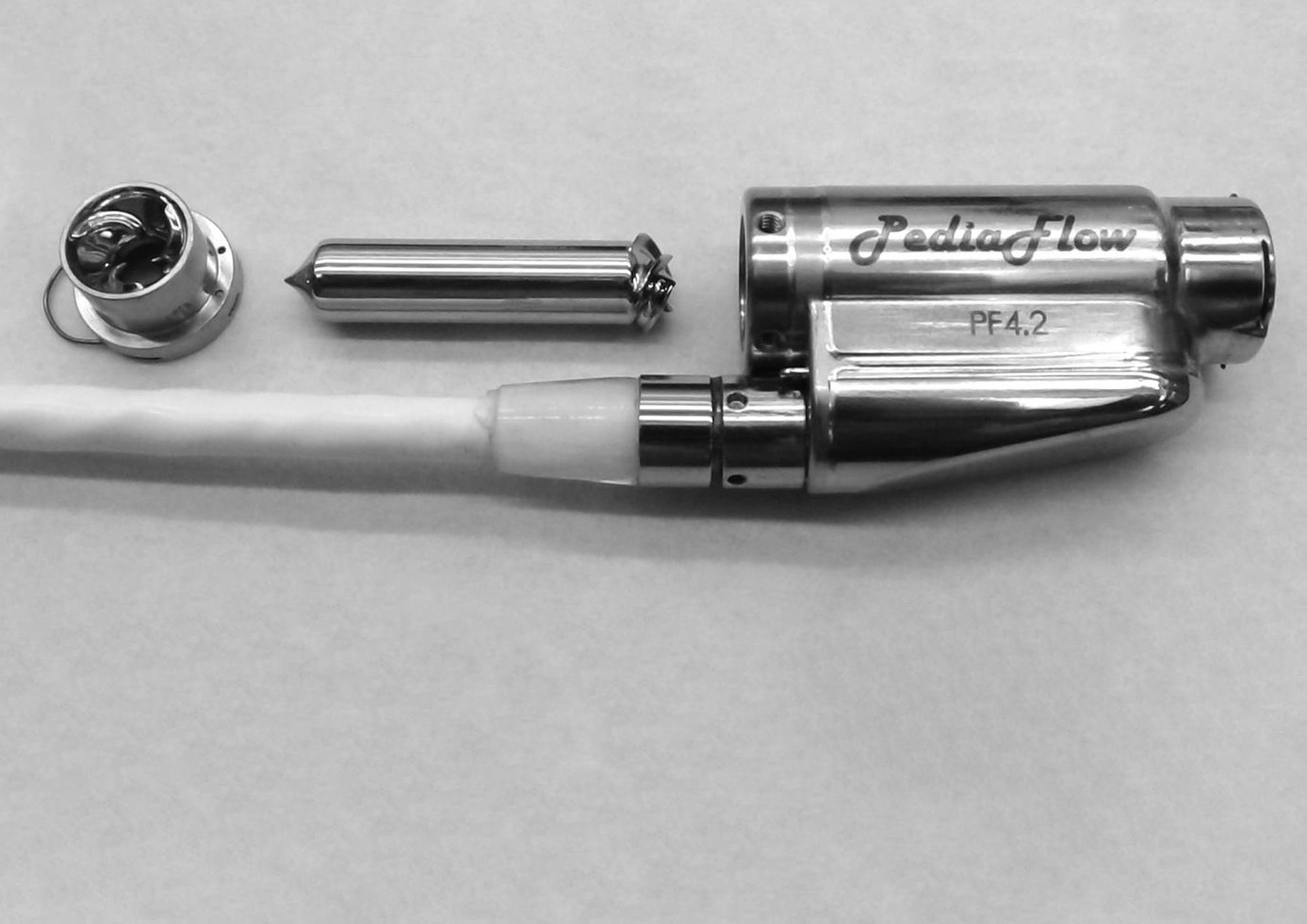Infant Heart-Assist Pump Secures $4.7M from the DOD
The Cornell University-led project will use the award to complete development of their ventricular assist device
PITTSBURGH (July 23, 2020) … The Center for Disease Control estimates that roughly 40,000 infants are born with congenital heart defects (CHDs) each year. Among that population, 25 percent are critical cases that require cardiac surgery. The waitlist for a heart transplant continues to grow; yet, the only FDA-approved life-saving device for CHD has shortcomings and is based on technology from the 1970s. A multi-institutional team, including faculty and students from the Swanson School of Engineering (SSoE) and McGowan Institute for Regenerative Medicine (MIRM), recently received funding to advance this technology.
The PediaFlow® Ventricular Assist Device (VAD), a heart-assist pump for infants and young children, received a $4.7 million grant from the U.S. Department of Defense (DoD). The device, originally developed at the University of Pittsburgh, is intended to support patients with congenital and/or acquired heart disease.
James Antaki, the Susan K. McAdam Professor of Heart Assist Technology at Cornell University’s Meinig School of Biomedical Engineering, will lead the project’s development and preclinical validation.
(See Cornell University’s announcement)
“It is a new lease on life for this device for children who have no other alternative,” said Antaki.
The device is a miniaturized, magnetically levitated, rotary VAD that is roughly the size of a AA battery and can provide sufficient blood flow for infants and small children. Implantation of the device could also potentially rehabilitate a child’s heart back to health, thus obviating the need for a cardiac transplant.
The project began in 2002 at Pitt and builds upon blood pump technology developed by several SSoE and MIRM faculty and students over the past decade.
After evaluating three pump topologies, the research group chose a mixed-flow configuration and applied a computational fluid dynamics approach to optimize the design from the point of view of outstanding biocompatibility. Bench and preclinical studies have demonstrated outstanding biocompatibility of the PediaFlow VAD.
“Despite the clinician mantra that ‘babies are not just tiny adults,’ pediatric heart pump development has been historically limited to the miniaturization of existing adult devices with minimal success,” said Salim Olia (BioE PhD ’18), adjunct assistant professor of surgery at the University of Pennsylvania School of Medicine.
Olia conducted the crucial bench and preclinical PediaFlow tests as part of his PhD dissertation in the Department of Bioengineering at Pitt and is continuing his work for the DoD award.
“PediaFlow represents a clean slate approach of designing from the ground up with the primary objective of maximizing patient safety by minimizing blood damage,” he continued.
Pitt’s subcontract on this DoD award is a collaboration between SSoE and MIRM. In particular, Marina Kameneva, research professor of surgery and bioengineering, and William Wagner, director of the McGowan Institute and distinguished professor of surgery, bioengineering and chemical engineering, will direct studies assessing the biocompatibility and overall suitability of the PediaFlow pumps developed under the DoD award for clinical use.
According to Harvey Borovetz, Distinguished Professor of Bioengineering and the Robert L. Hardesty Professor of Surgery, “It is our goal at the end of the three-year DoD award to have completed development of the PediaFlow heart-assist pump, in anticipation of submitting an Investigational Device Exemption (IDE) application to the FDA and initiating clinical feasibility studies in these very special patients.”
# # #
Contact: Leah Russell

